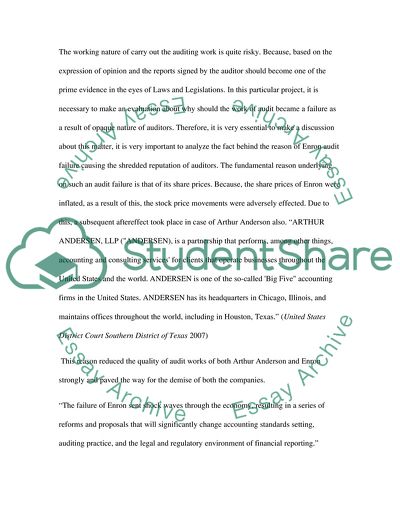Cite this document
(Audit Failure in Result of Shredded Reputation to Auditors Case Study, n.d.)
Audit Failure in Result of Shredded Reputation to Auditors Case Study. https://studentshare.org/finance-accounting/1708974-audit-failure-in-result-of-shredded-reputation-to-auditors
Audit Failure in Result of Shredded Reputation to Auditors Case Study. https://studentshare.org/finance-accounting/1708974-audit-failure-in-result-of-shredded-reputation-to-auditors
(Audit Failure in Result of Shredded Reputation to Auditors Case Study)
Audit Failure in Result of Shredded Reputation to Auditors Case Study. https://studentshare.org/finance-accounting/1708974-audit-failure-in-result-of-shredded-reputation-to-auditors.
Audit Failure in Result of Shredded Reputation to Auditors Case Study. https://studentshare.org/finance-accounting/1708974-audit-failure-in-result-of-shredded-reputation-to-auditors.
“Audit Failure in Result of Shredded Reputation to Auditors Case Study”. https://studentshare.org/finance-accounting/1708974-audit-failure-in-result-of-shredded-reputation-to-auditors.


